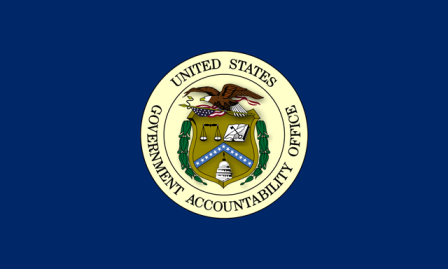Last week the U.S. Government Accountability Office (GAO) released a report titled "Large Bank Holding Companies: Expectations of Government Support."
And wouldn't you know it - all the "Too Big to Fail" banks broke out their crack pipes.
The highly anticipated report didn't surprise anybody. After all, we all already know that big banks are government bootlickers... when they need to be.
But that's not all the report said.
Keep reading, and I'll reveal the report's "shocker."
Too Big to Fail: It's Never OverLawrence Evans, director of financial markets and community investment at the GAO, said, "Our analysis suggests that large bank holding companies had lower funding costs than smaller ones during the financial crisis but provides mixed evidence of such advantages in recent years."
 Essentially, the GAO is saying banks aren't accountable for the subsidy they received. And anyway, they don't get that subsidy anymore, because they don't need to be saved... at least not today.
Essentially, the GAO is saying banks aren't accountable for the subsidy they received. And anyway, they don't get that subsidy anymore, because they don't need to be saved... at least not today.
The GAO is saying that the subsidy the Too Big to Fail banks enjoyed when the you-know-what hit the fan and they were all bailed out is over.
The subsidy, which amounted to a government and U.S. Federal Reserve put option (their insurance against failure) for big banks, is over.
And the advertised fact that these banks won't be allowed to fail, which drives depositors into their waiting arms... that subsidy is over.
The GAO is saying the flow of funds from depositors that gives big banks a tremendous advantage over all other banks that would be "allowed" to fail isn't there anymore.
How stupid do these morons think we are?
The six Too Big to Fail banks that got bailed out are all bigger now than they were before the crisis they helped cause.
How much bigger?
They each got bigger every year.
Federal Deposit Insurance Corporation (FDIC) "call reports" show that the Big Six took in about half of the $2 trillion in banks' new assets from 2009 to early 2014.
No, the GAO says - there's no subsidy. Everyone just likes the personal touch and innumerable fees the big banks are famous for.
Of course the findings have been welcomed by the TBTF banks. Tim Pawlenty, the banks' chief lobbyist as chief executive officer of the Financial Services Roundtable, lit his pipe, exhaled his crack cloud, and said, "The results are good news for free markets, consumers, and taxpayers."
I say, "Pass me that pipe."
I want to see things the way they see them. But until I take a hit of their crack, I know what the truth is.
Too Big to Fail is still here - and bigger than before. There's no subsidy now because the banks aren't failing right and left.
But come the next banking crisis, as sure as the sun will shine, there will be another massive round of subsidies. And not only from depositors running into their open arms, but also from government serfs paying homage to their masters, and from the leaders of the Federal Reserve, who exist to serve their gods.
There's only one answer to the drug-addicted crack banks. Break them up before we all fall into the crack they're digging for us.
More from Shah Gilani: Some would have you believe that regulations like Dodd-Frank are impeding economic recovery. But the truth is, important recession safeguards are coming under heavy attack. Here's what's really holding back the recovery...
Tags: big banks, GAO report, Government Accountability Office report, TBTF, Too Big to Fail, too big to fail banksThe post Don't Listen to the GAO – "Too Big to Fail" Is Bigger Than Ever appeared first on Money Morning - Only the News You Can Profit From.
